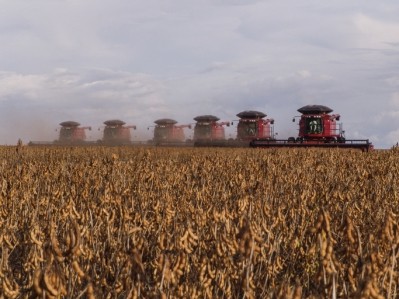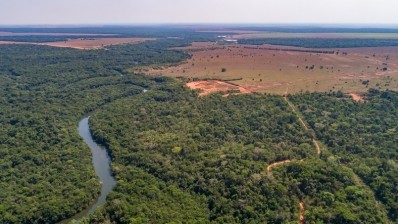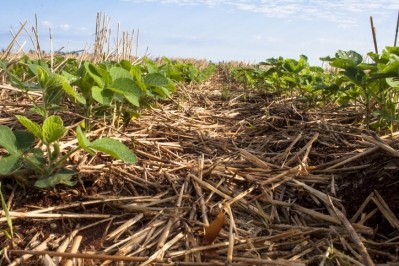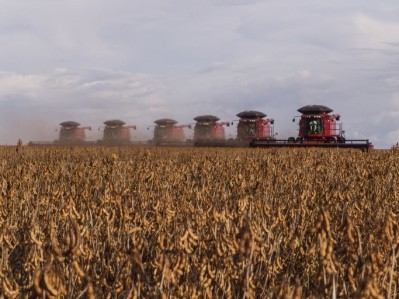Traceability, data offers key to reducing deforestation risk from beef product trade
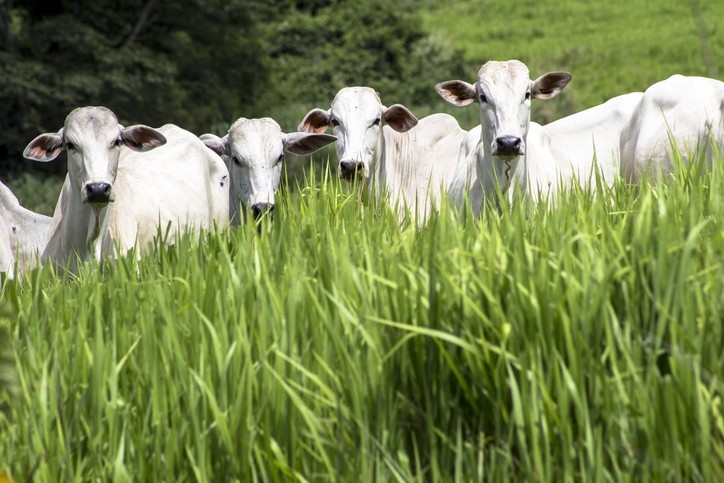
As the US considers re-opening the export market for fresh beef products from Brazil, several environmental advocacy organizations have been examining the link between increased production and deforestation risks. Mighty Earth, Trase and the National Wildlife Federation presented some of the findings from that effort in a presentation Tuesday [July 2].
Glenn Hurowitz, CEO of Mighty Earth, said the environmental advocacy organization has been working to both disrupt the connection between agricultural expansion and deforestation and to support private sector actions to protect the environment. “We are concerned about … the prospect of the US relegalizing the imports of Brazilian beef and the impacts that could have in the context of the surge in deforestation that we’re seeing in Brazil."
“There are tens of millions of hectares [of] rainforest and biodiverse savannah that are under threat and we’re doing everything we can to make sure that the private sector and international governments, including the US, take action to ensure that they’re – at a minimum – not contributing to that problem,” he said. “That means companies should at least adopt policies to not purchase cattle or animal feed from producers who engage in the destruction of native ecosystems.”
As part of the effort to address the issue, the supply-chain transparency organization, Trase, examined the link between deforestation risk and beef exports from Brazil. The dataset generated by the research project is set to be released later this month.
“We recently completed our mapping of Brazil’s beef exports,” said Erasmus zu Ermgassen, a researcher with Université Catholique de Louvain and Trase. “What that involves is tracing 98% of all live cattle, beef products and offal exports from 2015 to 2017 – we link it from more than 3,000 municipalities in Brazil, where the cattle were raised, to more than 200 companies that handled the export of those products to 150 different international markets, of which the US is just one.”
The study provides information regarding the potential risks from deforestation if the fresh meat market to the US is reopened without a prevention system in place, he said.
“‘Deforestation risk’ is the estimate of the area of cattle-associated deforestation (in hectares) linked to beef exports in each year, based on the municipalities where the cattle were raised,” he told us.
However, he said, deforestation is not inevitable with cattle production in Brazil. “The link between deforestation and cattle production can, however, be broken but it requires that companies sourcing from Brazil push for improved traceability,” he added.
As the consideration of reopening the trade pathway continues, there are steps that companies can take to address concerns or risks related to deforestation from increased cattle production in Brazil, zu Ermgassen said. “For companies importing Brazilian beef or sourcing soy from Brazil, improvements in traceability are key to ensuring their supply chains are not complicit in driving deforestation.”
“Companies may start by investigating the origin, and the risks, linked to their sourcing,” he said. “They may then choose to engage downstream with their suppliers about their protocols to avoid sourcing from recently deforested land.”
Cattle feed, deforestation
The focus of the deforestation concern with cattle comes from the need to feed cattle either on pasture or in the expanding feedlot system, said zu Ermgassen. “Deforestation in Brazil is driven by both crop expansion (soy, mostly) and expansion of grazing lands,” he added.
“Though feedlot systems are growing quickly, Brazilian cattle production remains mostly grass-based, and most of the deforestation footprint of cattle is linked to pasture expansion – two-thirds of deforested land in Brazil's Amazon rainforest and Cerrado savannah are used for cattle pasture,” he told us. “We presented figures for pasture expansion linked to exported beef products.”
The Trase organization has used supply chain mapping to track soy production in Brazil.
When applied to cattle production, the tracking system found “75,200-78,900 hectares of deforestation risk” connected to exports of Brazilian beef every year during the period when Brazil was exporting fresh beef products to the US, he said. That is out of “260,000-580,000 hectares/year of cattle ranching-associated deforestation in Brazil.”
Tracing, understanding risk
Brazil is the largest exporter of cattle globally, said zu Ermgassen. However, that market also has been linked to about one-fifth of the “commodity-associated deforestation in the tropics.”
In examining the current beef product export market from Brazil to the US, which does not include fresh products, Trase found that the supply line has little risk of deforestation, he said. The processed products mostly come from the southern part of Brazil and the cows used to produce those products are from places where “deforestation is relatively low.”
“The current risk profile of American imports is relatively low risk,” he said.
However, that changes when it it comes to fresh beef product exports, he noted.
From 2016 to 2017, there was about a year-long period when fresh beef products were exported from Brazil to the US, and unlike the processed products, these products originated across Brazil, including from several states in the areas near the Amazon, said zu Ermgassen. “These slaughter facilities were linked to much higher levels of deforestation risk,” he added.
“What we saw was, that opening up this fresh meat market, it approximately doubled the value of exports from Brazil to the United States, but it more than trebled the amount of deforestation linked to the US market."
